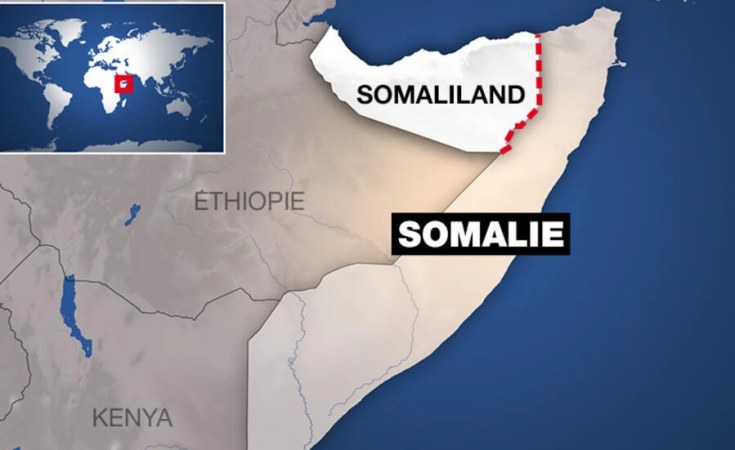The Somaliland electoral commission announced Tuesday that opposition leader Abdirahman Mohamed Abdullahi "Irro" defeated incumbent Muse Bihi Abdi for the presidency of the breakaway region located on the Horn of Africa.
Independent observers described the election as peaceful. Irro, candidate for the Waddani (National) party captured 63.92% of the vote, compared with Bihi's 34.81%. A third candidate, Faysal Ali Warabe, received 0.74% of the votes.
The election was originally scheduled to take place in 2022 but was delayed due to political differences.
Bihi, who defeated Irro in the last election in 2017, promised during the campaign that he would respect the results of the election.
Irro ran on a platform of change, promising to create a brighter future for the people of Somaliland, including more work and job opportunities for women.
Somaliland in 1991 declared its independence from Somalia, which views it as a northern breakaway region, not a separate nation.
Its location near Djibouti puts it close to the only permanent U.S. military base in Africa and the first overseas base for China.
Both Bihi and Irro said they hope the incoming administration of U.S. President-elect Donald Trump will review policy toward Somaliland. The U.S. and Somaliland do not have diplomatic relations. The U.S. recognizes the sovereignty and territorial integrity of Somalia within its 1960 borders.
Irro recently posted messages of congratulations to Trump after his victory.
"We Somalilanders are thrilled with your bold policies towards Somaliland and look forward to strengthening the #Somaliland-US Partnership, as the President Aspirant, I look forward to promoting and contributing to a more stable, peaceful, and prosperous East Africa and the Red Sea," Irro said.
The International Election Observation Mission (IEOM) to Somaliland's presidential elections said the elections took place in a "mostly calm and peaceful environment where registered voters were able to exercise their right to vote during the day."
IEOM said it did not observe any serious irregularities or electoral malpractice, although observers noticed procedural and administrative inconsistencies that could be addressed by better training.
The mission said it "identified a number of issues that electoral authorities could address including making sure that the secrecy of the vote is upheld in future elections and that the voter register is updated more regularly and closer to the holding of elections to ensure it is up-to-date."
"In addition, voters need to be better informed about voting procedures," the mission added in an assessment of the election.
Who is the new president?
Abdirahman Irro, as he is commonly referred to, was born on April 29, 1955, in Hargeisa, Somalia. After completing his secondary school education at Sheikh high school near Burao town, he moved to Mogadishu for higher education.
He has a diploma from the Somali Institute of Development Administration and Management, and SIDAM/California State University and he earned an MBA from SIDAM/New York State University, according to the Waddani party's website.
He speaks Somali, English, Arabic, Russian and Finnish, the party said.
In 1981 he was employed by Somalia's Ministry of Foreign Affairs as a diplomat. During his time there, he worked at the Somali embassy in Moscow, before moving to Finland to live with his family.
He started leading Somaliland community organizations in Finland before he returned to Somaliland in 1999 to join politics. He was elected to the Somaliland Parliament in 2005, and became the speaker for the first democratically elected Parliament, a position he held for 12 years.
In 2012, he co-founded the Waddani political party and was chosen as its first chairman as well as the presidential candidate for the 2017 election.
Following parliamentary elections in 2021, Waddani become the majority party in parliament.
According to human rights lawyer and analyst Guleid Ahmed Jama, the election shows the strength of Somaliland's democracy.
"After two years of political controversy and election delays that resulted in political violence, the successful completion of the electoral process is good news," he said.
"However, it does not solve the many problems Somaliland is facing. There are big tasks ahead of the president-elect. I believe a government of national unity can salvage Somaliland and unite the divided and polarized people. The president-elect should not treat this as a win-lose scenario. He should come up with a plan to unite the people."


